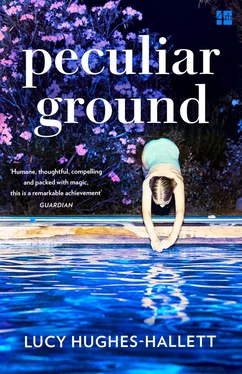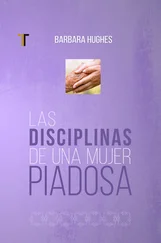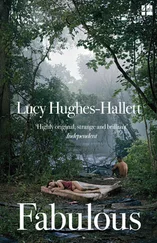I addressed my conversation to the matron.
‘Madam, I hope you will forgive the liberty I take in calling upon you uninvited. I am John Norris. I have had the pleasure of meeting Miss Cecily at Wychwood. I was walking this way and hoped it would not be inconvenient for you if I were to make myself known.’
She replied in equally formal vein. So I must be acquainted with her nephew. Any connection of his was welcome in her house. She hoped I enjoyed the improved weather. No questions asked. No information divulged. The maid brought us glasses of cordial while we played the conversational game as mildly and conventionally as a pair of elderly dogs, in whom lust was but a distant memory, sniffing absent-mindedly at each other’s hinder parts. But then she demonstrated that she could read my mind.
‘I suppose young Arthur has told you that I am deranged? You will be puzzled to find me so lucid.’
Cecily murmured something, but the older lady persevered. ‘He tells everyone so. He has reasons for the assertion. One is that there is some truth in it. My mind’s eye sees the world’s affairs in a manner as blurred and uncertain as that with which my corporeal eyes see that tree. Fine needlework, as you observe, I am good for, but for keeping a lookout I am useless. And although in cheerful sunlight like this I can be as bright as the day, in dark hours I grow dull.’
‘I am sorry to hear it,’ I began awkwardly. She didn’t pause.
‘So you see, judging that to lie unnecessarily is to lay oneself open to exposure when one could be safely armoured in truth, he broadcasts an opinion that is not quite a falsehood, and under this cover he hides his other purposes.’ Her voice trailed away.
Cecily laid down her needle and took her mother’s hand.
‘Mr Norris cannot be as concerned with our affairs as we are, Mother,’ she said. ‘He is an artist. A maker of landscapes.’
‘A painter?’
I explained that, no, the kind of picture I make is not the representation of a scene, but the scene itself. That while God makes countryside, man refines it into landscape (an audacious joke, but one I thought I could allow myself in this secluded place). That nature and the unnatural make happy partners, and flourish when coupled. I said that those painters who depict what they call pastoral scenes seldom or never show brambles or stinging nettles or the mud churned up on a riverbank by herds of beasts. Their pastorals are all artifice, their pastures in fact gardens.
I was becoming excessively wordy. It is mortifying to know, as I do all too well, that when I talk with greatest satisfaction, expatiating on a subject that truly engages me, then I am most tedious. Becoming self-conscious, I fell quiet.
‘Mother,’ said Cecily, ‘you are tired. Mr Norris would like to see our orchard, I dare say.’
The lady appeared sprightly still, but she acquiesced. ‘Lead him to it then, and show him.’
I would truly have welcomed the opportunity to inspect the orchard, which was admirably well set out. I was struck by the fireplaces inserted into a wall, which I fancied must have been of double thickness, with a cavity which could thus be filled with heated air. So peaches and apricocks could lean against warm brick, even when the untrustworthy English sun had failed to shine upon them. This ingenious arrangement was a novelty to me. I would have liked to give it my full attention, but as soon as we were within the enclosure, Cecily turned.
‘I wonder how much Lord Woldingham has spoken to you of me.’
‘Very little, but to say that Wychwood was your home while he was abroad.’
‘Our home yes, but always his house. My parents were not his usurpers. They were his stewards while, for his safety, he could not be with us.’
My eyes, which I believed to be shaded by the brim of my hat, dwelt with pleasure on a blossoming tree. Damson, Damascenum , if I was not mistaken. This family’s divisions formed a familiar tale. Barely a household in the land has not been so cut up. I wondered why she was so eager to take me into her confidence.
‘But he spoke of my mother?’
‘He did, and forgive me for repeating what may distress you, but she is correct in supposing that he told me that her wits had failed.’
‘She is also correct in saying that his motives for so speaking of her are several. That there is a smidgeon of truth in the allegation, she openly accepts, as you have heard. Many people of her age are forgetful. She is no longer so ready as she once was to apprehend new ideas. At night she is sometimes seized by unreasonable fears, and her distress then is painful . . .’
A tiny hesitation. I thought she had meant to say ‘painful to witness’, but had silenced herself for fear of seeming to complain.
I said, ‘She seems as gracious a lady now as she ever must have been.’ I was greatly pleased to see that someone had thought to underplant the apple trees with anemones, so that the blush of the blossom’s fat petals was counterpoised by the blue fringe of the little ground-flowers’ raggedy show.
‘Lord Woldingham is not quite the person he pretends to be. He is considerate.’
I bowed my head slightly. It was not for me to discuss my employer’s qualities with a connection of his.
‘I think that when he asked my mother to remove herself and her daughter from Wychwood, he pacified his own conscience and the opinion of those around him with a pretence that she was incapable. She needed absolute tranquillity, he said, and he could grant her this old manor as a refuge. His wife did not want another mistress in the great house.’
I have so far encountered Lady Woldingham only fleetingly, in London. I would gladly have asked for Cecily’s impressions of her, but we were not under-servants to gossip about those set above us.
‘Now he sustains the myth of her incapacity for another reason. It is a shield for us.’
She had my attention. I would like to have understood her. But we were interrupted. The old woman who had seemed to follow me came through the wicket that led from the orchard out onto a paddock and thence to the woods. A boy, delicate-featured, accompanied her, carrying a basket. Cecily went to her and took her hand.
‘Meg, this is Mr Norris,’ she said. ‘It is he of whom I spoke. He who would make lakes with the well-water.’
The other spoke no word, but regarded me intently.
Soon thereafter Miss Rivers indicated that my visit should be concluded. As I walked away I saw her and Meg pacing, heads together, beneath the fruit trees. The boy was swinging by his hands from an apple bough. It pained me to observe that Cecily walked quite needlessly over a patch of grass where I had noticed the glistening spears of coming crocuses. How many purple-striped beauties must have been crushed prematurely by the wooden sole of her clog!
*
This morning I found myself, unintentionally, spectator to an affecting scene.
The room that serves me as an office overlooks the yard. In times to come, carriages will set visitors down before the new portico. That they will enter the house through an antechamber shaped like a Grecian temple is not, to my mind, Mr Rose’s happiest notion. For the present, though, they come clattering in the old way, by the stables, so that the horses’ convenience is better served, perhaps, than that of the persons they transport.
A din of wheels on cobblestones and the shouting of grooms. I went to the window. A great number of chests and bundles were being lowered from the carriage’s roof. Only the luggage, then, I thought, and made to return to my writing desk, when a man ran across the yard below in a state of undress that shocked me. A footman run amuck. But no, the shirt flapping out of his breeches was fine, its billowing sleeves trimmed four inches deep with lace. The stockings in which he darted so noiselessly over the paving were silken; the breeches, scarce buttoned, were of a lavender hue with which I was familiar, but not from seeing them on a servant’s shanks. That shaven head, that I had never before seen unwigged, bore on its front a face I knew. By the time I had identified him, Lord Woldingham was down on his knees on the cobbles and three small children were climbing him as though he was a rigged ship, and they the midshipmen. He was laughing and snatching at them and in a trice the whole party had tumbled over in a heap. Various bystanders – whom I took to include nurse and nursemaids, governor and tutors – remonstrated and smiled by turns. And all the while the grooms kept on with their work, seeing to the horses and unloading the carriage with an almighty bustle.
Читать дальше











